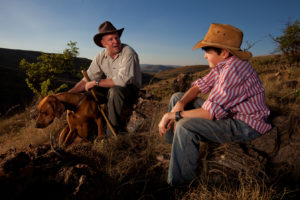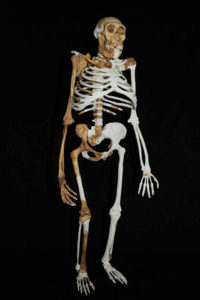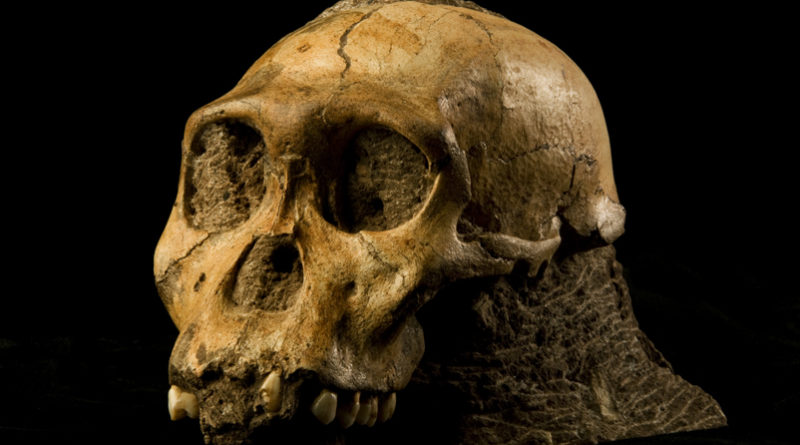Perot Museum Announces Once-in-a-Lifetime Exhibit
Fossils of two recently discovered ancient human relatives (Australopithecus sediba and Homo Naledi) will come to the United States from South Africa this fall for the first, and likely only, time to be featured in the limited-run exhibition “ORIGINS: Fossils From The Cradle of Humankind.”
The exhibit will open Oct. 19 at the Perot Museum of Nature and Science.

Discovered in 2008 by then nine-year-old Matthew Berger, Australopithecus sediba were some of the most complete hominin skeletons known in the fossil record at the time. Just five years later, the first fossils of another new ancient relative, Homo Naledi (formally described in 2015), were dramatically unearthed in South Africa by a Wits University team including the Perot Museum’s Dr. Becca Peixotto, director and research scientist of the Center for the Exploration of the Human Journey. Together, these two remarkable discoveries provide further evidence for the complex and nuanced processes of human evolution.
 “As humans, we are innately compelled to explore and understand our origins, and this exhibition provides an extraordinary and historic opportunity to come face-to-face with two newly discovered species of our ancient human relatives,” said Dr. Linda Silver, Eugene McDermott chief executive officer of the Perot Museum. “The fossils featured in ORIGINS have never been displayed outside South Africa – and probably never will be again. The Perot Museum is honored to host the exclusive exhibition of these significant specimens and thrilled to have our scientists involved in their actual discovery.”
“As humans, we are innately compelled to explore and understand our origins, and this exhibition provides an extraordinary and historic opportunity to come face-to-face with two newly discovered species of our ancient human relatives,” said Dr. Linda Silver, Eugene McDermott chief executive officer of the Perot Museum. “The fossils featured in ORIGINS have never been displayed outside South Africa – and probably never will be again. The Perot Museum is honored to host the exclusive exhibition of these significant specimens and thrilled to have our scientists involved in their actual discovery.”
The Perot Museum will present the exhibit from Oct. 19 to March 22, 2020. Further details on the fossils’ journey from South Africa to Dallas, the exhibition experience and how to purchase tickets will be shared in the coming months.
The limited-time exhibition is in partnership with the University of the Witwatersrand and the National Geographic Society.
ORIGINS: Fossil from The Cradle of Humankind’ will bring to life years of scientific research tied to the Perot Museum’s recently launched ‘Center for the Exploration of the Human Journey,’ a global hub for education, communication and research in the study of human origins.
The exhibition will also showcase the collaboration and dedication demonstrated by a diverse, multinational scientific team of women and men, led by world-renowned paleoanthropologist and National Geographic Explorer-at-Large, Professor Lee Berger of Wits University. Berger also serves as the distinguished science advisor for the Perot Museum’s Center for the Exploration of the Human Journey.
“Today’s announcement represents years of work by so many dedicated scientists and demonstrates a remarkable collaboration between the Perot Museum, Wits University, National Geographic Society, and numerous government and cultural entities within South Africa,” said Berger. “We are eager to have a chance to share these findings – which shape our understanding of our early origins – with the people of Texas and the world.”









